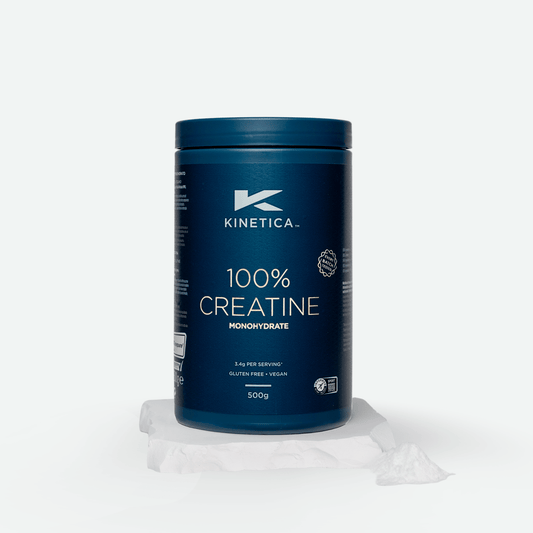Four Watch Outs If You’re Doing Veganuary

1. When opting for a vegan diet, your protein needs can be difficult to meet if you're not sure where to look. Some protein sources suitable for vegan diets are legumes, nuts, seeds, tofu and seitan. Kinetica's plant based protein powder is also an excellent source of protein that can be added to smoothies, baked goods and porridge to make life that bit easier and tastier!
2. Creatine is one of our body's energy sources and can also be provided from our diet through animal based products like fish and chicken for example. However, our diet doesn't tend to meet our needs to deliver a performance enhancing response so supplementing with creatine is needed to maximise our stores. Creatine monohydrate is a supplement that is a proven ergogenic aid used to improve strength [i], recovery [ii], glycogen storage[iii] and sprint performance [iv] and most recently, a potential support in cognitive function [v], so it is worth paying attention to. For those of us following a vegan or vegetarian diet, creatine stores can be lower than the average omnivore person therefore supplementation can have more pronounced effects. Kinetica's Creatine Monohydrate is a batch tested, quality assured option for you.
3. If choosing to go vegan this January, there are some nutrients worth being mindful of as their presence can be sparse in plant based foods. These include; calcium, iodine, iron, vitamin B12 and omega 3 fatty acids.
4. Vitamin D is an important vitamin over the winter months (October - March) when living in Ireland as we don't see much sun. While those of us who aren't taking part in Veganuary may find some of this vitamin in sources like cheese and oily fish, we still don't tend not to meet our needs through the diet. The sunshine is a big supplier of vitamin D and while that's not present during the winter, we may need an extra hand. So whether the vegan life is for you or not, supplementing with Kinetica's vitamin D3 spray can support your vitamin D levels, in turn supporting your bone health, immune and muscle functioning.










